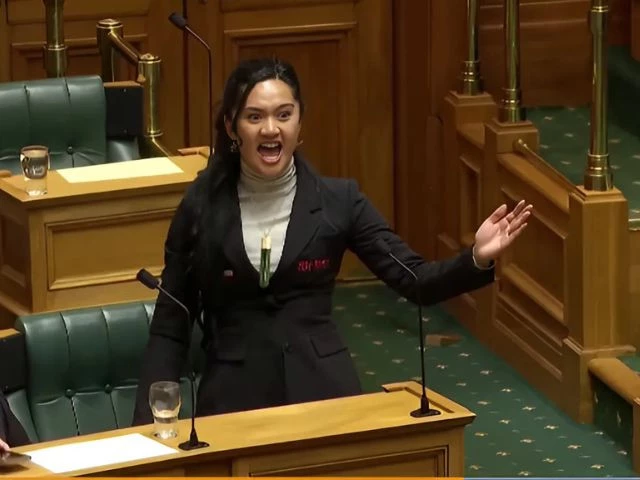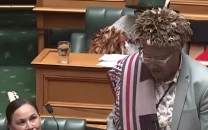Three Maori MPs suspended over haka protest in New Zealand parliament
The haka, often used as a challenge or ceremonial war dance, is a symbol of Maori culture and resistance

New Zealand's parliament on Thursday imposed record-long suspensions on three Indigenous Maori lawmakers for staging a haka protest during a vote on the controversial Treaty Principles Bill last November.
The bans mark the longest-ever suspensions handed down by the New Zealand parliament.
Maori Party co-leaders Rawiri Waititi and Debbie Ngarewa-Packer were each banned for 21 days, while Hana-Rawhiti Maipi-Clarke, the youngest serving MP in New Zealand, received a seven-day suspension.
The suspensions stem from an incident during a vote on the Treaty Principles Bill, a proposal to reinterpret the terms of New Zealand’s founding treaty, signed between Maori chiefs and British representatives in 1840. Waititi and Ngarewa-Packer performed a haka — a traditional Maori war dance — in defiance of the bill, while Maipi-Clarke ripped up the bill and led the protest.
The haka, often used as a challenge or ceremonial war dance, is a symbol of Maori culture and resistance. Waititi, in a statement to the press, held up a noose in reference to the wrongful execution of his ancestor, highlighting the historical silencing of Maori voices.
"Now you've traded the noose for legislation. Well, we will not be silenced," Waititi said.
The protest drew attention both within New Zealand and internationally, with video footage widely circulated on social media. The trio’s actions resulted in them being summoned before parliament’s Privileges Committee, though they refused to participate in the hearing.
In parliament on Thursday, the three MPs were met with strong opposition, including from New Zealand's foreign affairs minister, Winston Peters, who mocked Waititi’s full-face Maori tattoo, calling the Maori Party "extremists."
Maipi-Clarke, speaking after the suspensions were announced, voiced her frustration at what she perceived as an unequal standard for punishment.
"A member can swear, drive up the steps of Parliament, or even lay their hands on someone and get no suspension. Yet when we stand up for the country’s foundational document, we get punished with the most severe consequences," she said.
The Treaty Principles Bill, which proposed redefining the principles of the 1840 Treaty, was widely criticized as an effort to diminish the special rights of New Zealand’s 900,000-strong Maori population. The bill was resoundingly voted down by parliament in April.



























COMMENTS
Comments are moderated and generally will be posted if they are on-topic and not abusive.
For more information, please see our Comments FAQ